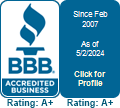Establishing and Calculating Child Support in a New Hampshire DivorceNew Hampshire's 2008 Child Support Guidelines became effective on April 1, 2008.(See also "Enforcement of Child Support Orders in a New Hampshire Divorce." All of the forms, instructions, calculators, and statutes can be downloaded from the following Web site, including:
New Hampshire developed Child Support Guidelines based on the following principles:
The Guidelines provide a formula that is used to determine the amount each parent's financial responsibility. The formula takes into account the number of children to be supported and the income of each parent. If a parent's income is below the amount the Guidelines allows for a "self-support reserve" and the parent is not voluntarily unemployed or underemployed, the support obligation is $50 per month. New Hampshire Code, Section 458-C: 2 New Hampshire Child Support FormulaThe total support obligation is divided between both parents in proportion to their respective incomes. New Hampshire has a Child Support Calculator to assist in determining the appropriate financial division. The calculator asks for the following information for both parents:
The Child Support Guidelines allow for deviations from the formula for the following situations:
|
New Hampshire Divorce Forms
Self-Prepared
| New Hampshire Divorce | $59.00 |
| NH MSA | $39.00 |
| NH Divorce & MSA Combo (best value) | $89.00 |
Legal Technician-Prepared
| New Hampshire Divorce | $149.00 |
| NH MSA | $79.00 |
| NH Divorce & MSA Combo (best value) | $199.00 |
Free custom Parenting Plan included with every purchase.









